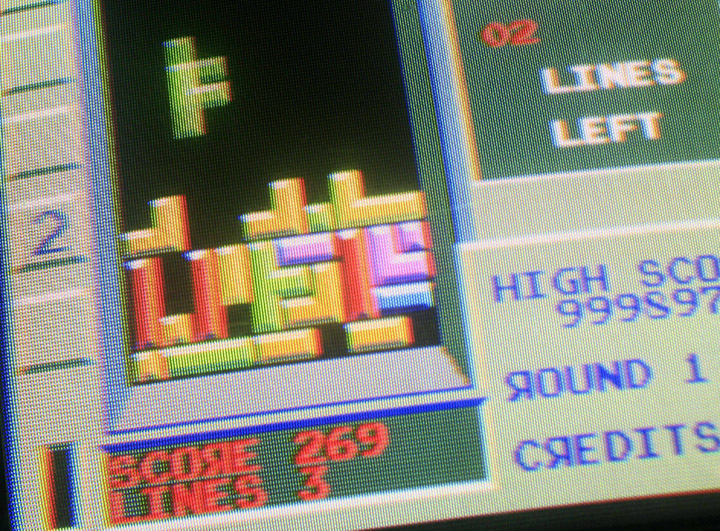TORONTO — It’s 3 p.m. and you’re fighting the urge to head over to the vending machine for a bag of chips. This may be an opportune time to whip out your smartphone and play a game of Tetris.

British researchers say that Tetris may be the fix to help distract your mind if it’s craving junk food — or even cigarettes and sex.
Cravings are distracting — they get in the way of our goals, and they also interrupt our tasks at hand. So how do we stifle them?
Plymouth University psychologists suggest that a game of Tetris or any other task that shifts our focus elsewhere is a good start.
“We know that cravings are associated with drug use and early dropout of weight-loss programs. They make life difficult,” Dr. Jackie Andrade, a psychology professor, told Discovery News.
READ MORE: Self-control is within our reach, even when we’re tired: scientists
In her study, published in the journal Appetite, she asked her test subjects if they had any cravings. Then she sat them in front of a computer — some people had a Tetris game ready for playing and others had a Tetris game that was loading.
Those who got to play the game right away reported 24 per cent weaker cravings.
“It doesn’t have to be Tetris, it could be anything visiual,” Andrade told NBC News.
“It also doesn’t have to be mentally demanding, but if it is, it has a better chance to block the craving,” she explained.
READ MORE: 10 health and nutrition stories of the year
Tasks that were based on speaking or listening to others weren’t as effective in staving off cravings. Andrade told NBC that her team chose Tetris because it marries visual stimulation with challenge. It’s also fun.
So what’s going on in our brains? Medical Daily suggests that our brains have one-track minds in a way — we concentrate on just a few things at any given time.
If we’re craving for food, or sex, or a cigarette, but then something else lands in our laps, our brains shift the cravings to the back burner.
READ MORE: How do lab rats eat Oreos? U.S. study suggests the cookies are as addictive as cocaine
Andrade’s own previous research suggested that doodling helped us concentrate. If we’re doodling then asked to take in information, our mindless scribbles are pushed aside to focus on the task at hand.
“It’s not pleasant to be craving. It’s great to really want to eat or make love, if that’s possible right now. But it’s a torture if you can’t. So if we can help people deal with craving — blunt it a bit, or give them some time out — it can not only help them stay in control but it may make them feel a bit better as well,” psychologist David Kavanagh told Discovery News.
In the meantime, Andrade is hoping to further her research.
READ MORE: Sweeteners create cocaine-like addictions: Canadian study
“We want to test this in the real world. We want it to be something as simple as possible, so that people can stop their cravings and then go living their lives,” she told NBC.
carmen.chai@globalnews.ca
Follow @Carmen_Chai






Comments